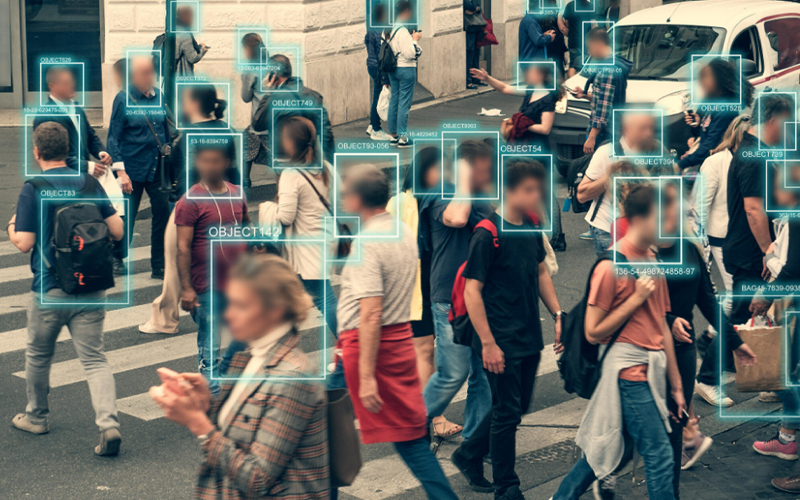As artificial intelligence (AI) makes deeper inroads into the healthcare sector, its foundation lies in one key factor – the quality of annotated training data sets. Annotation plays a crucial role in any machine or deep learning project. It is part of the training data process wherein texts, videos, images, etc., are labelled or tagged accurately. These data annotations establish the base for machine learning (ML) models to train and identify patterns and abnormalities, unravel complex issues, and much more. The quality of the training data has tremendous influence on the outcomes. Therefore, quality matters, always. And in healthcare, it matters even more. The quality of the data sets is the bedrock for training healthcare AI models, ultimately impacting the precision, adaptability and efficacy of their outputs. The output aids in diagnosing accurately, enhancing patient care quality, predicting treatments, gene sequencing and developing new drugs, to name a few.
ML models can help revolutionise healthcare by eliminating possibilities of human errors in diagnosis. The emphasis therefore, is on improving raw healthcare data and the annotation process, as the outputs can have life-changing impacts on people. Let us explore a few use cases highlighting the importance of high-quality annotated training data sets in healthcare.
Enhancing diagnostic accuracy
Early and accurate diagnosis is the key to timely treatment, recovery and even the difference between life and death in many cases. Medical imaging drives diagnostic procedures such as MRIs, CT scans and X-rays. One of the primary applications of ML in healthcare is diagnostic imaging, where ML models interpret medical scans to enhance diagnosis. The accuracy and efficacy of the results depend on the quality and diversity of the training data sets and the precision in labelling the various medical conditions.
For example, meticulously labelled images of specific features such as tumours, lesions or inflammations, with precise annotations indicating abnormalities, help AI models learn to effectively recognise even the slightest anomaly. Such models help overcome the limitations of human oversight, improving patient outcomes. It is possible to train these models to learn to such an extent that they can generalise from their learning and predict new cases.
Unleashing precision medicine
Today, we live in the era of personalisation driven by AI, and in healthcare, it translates to precision medicine. Tailored treatments individualised to perfectly suit a patient’s medical conditions are gaining ground in modern healthcare systems. To make this possible, the AI algorithms that help diagnose and prescribe the treatment must understand every nuance of the patient’s data. Whether it is medical history, genetic information or lifestyle factors, high-quality annotated training data sets help ML models achieve unparalleled precision. Such annotations are rich and diverse. Highlighting genetic markers and any earlier treatment and responses, etc. ensures more personalised treatment plans, leading to better outcomes.
The quality of annotation in healthcare can significantly impact even mortality rates in a few areas like oncology. Here, even subtle variations in tumour characteristics can influence treatment outcomes. Precise annotations can influence aspects such as prognosis, side effects and overall patient experiences. Significant strides are being made in precision medicine with the help of such AI models.
Driving healthcare innovation with high quality annotated data
Diverse, high-quality annotated data sets have become catalysts that can push the boundaries of what AI can achieve in healthcare. With precision data annotations, researchers and developers can explore new frontiers in crucial areas such as diagnostics, treatment planning and disease prevention. With high quality annotated data in place, the healthcare industry can pave the way for ground-breaking innovations in drug discovery, diagnostic support, virtual health assistants, robotic surgery and predictive analytics. For example, detecting early signs of subtle abnormalities that precede clinical symptoms may greatly help researchers studying neurodegenerative diseases. The key here could be accurately annotated data brain imaging. In some cases, early interventions may well be the way to counter disease progress and ensure a better quality of life.
In conclusion, the significance of high-quality annotated data sets in healthcare cannot be overstated. They drive diagnostic accuracy and precision in personalised medicine and foster innovation, heralding transformative changes in patient care. The healthcare industry must continue to embrace the power of AI with stakeholders prioritising the creation and utilisation of top-tier annotated data to ensure improved outcomes.
How can Infosys BPM help?
Infosys BPM’s AI annotation services can help your data science teams build high-quality ‘training data’ for AI at scale. Our proven service model leverages the power of human intelligence (Human-ware) and automation capability (software) to continuously churn out high-quality training data sets, saving time and resources so your teams can focus more on refining the model itself for better outcomes.









